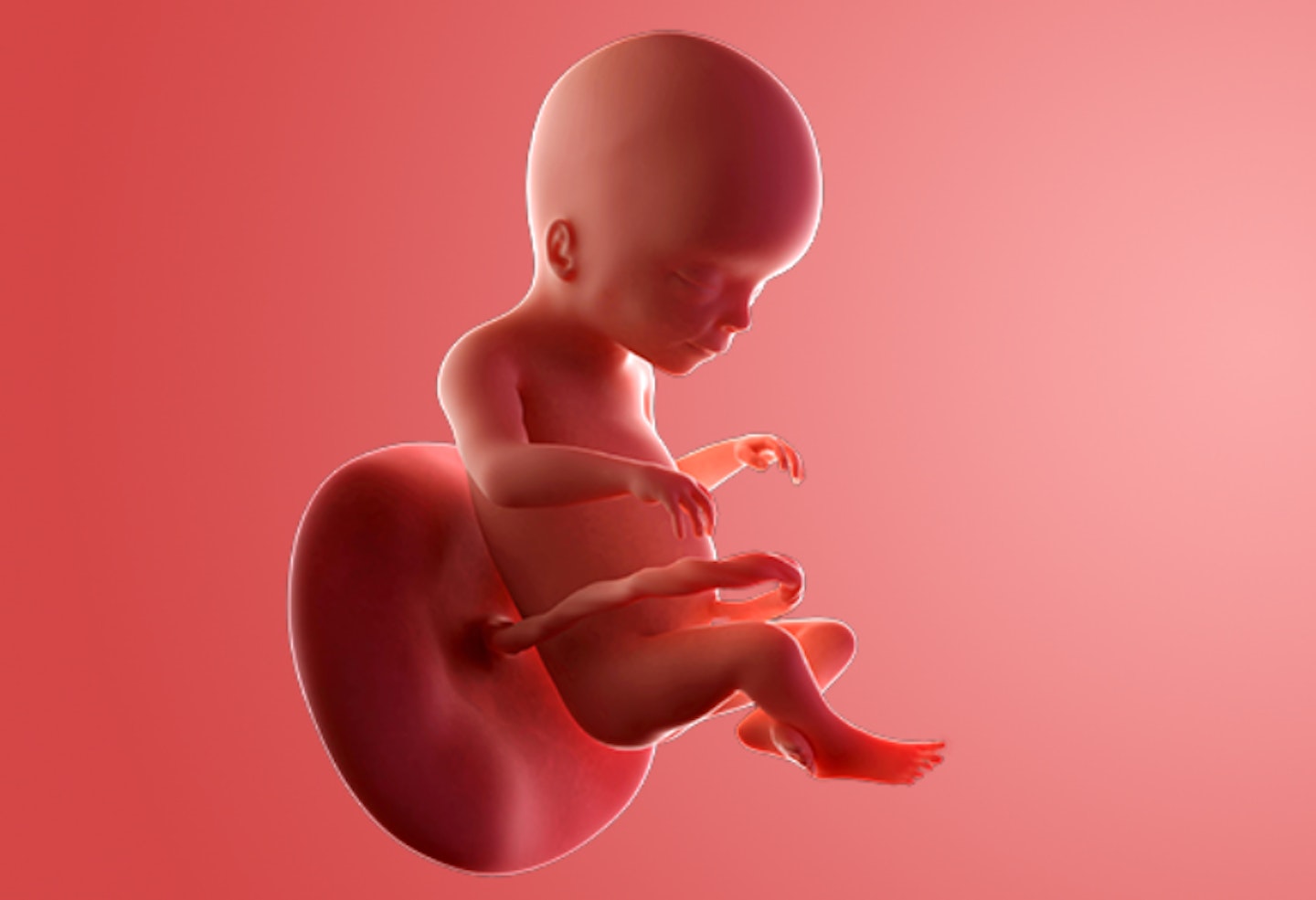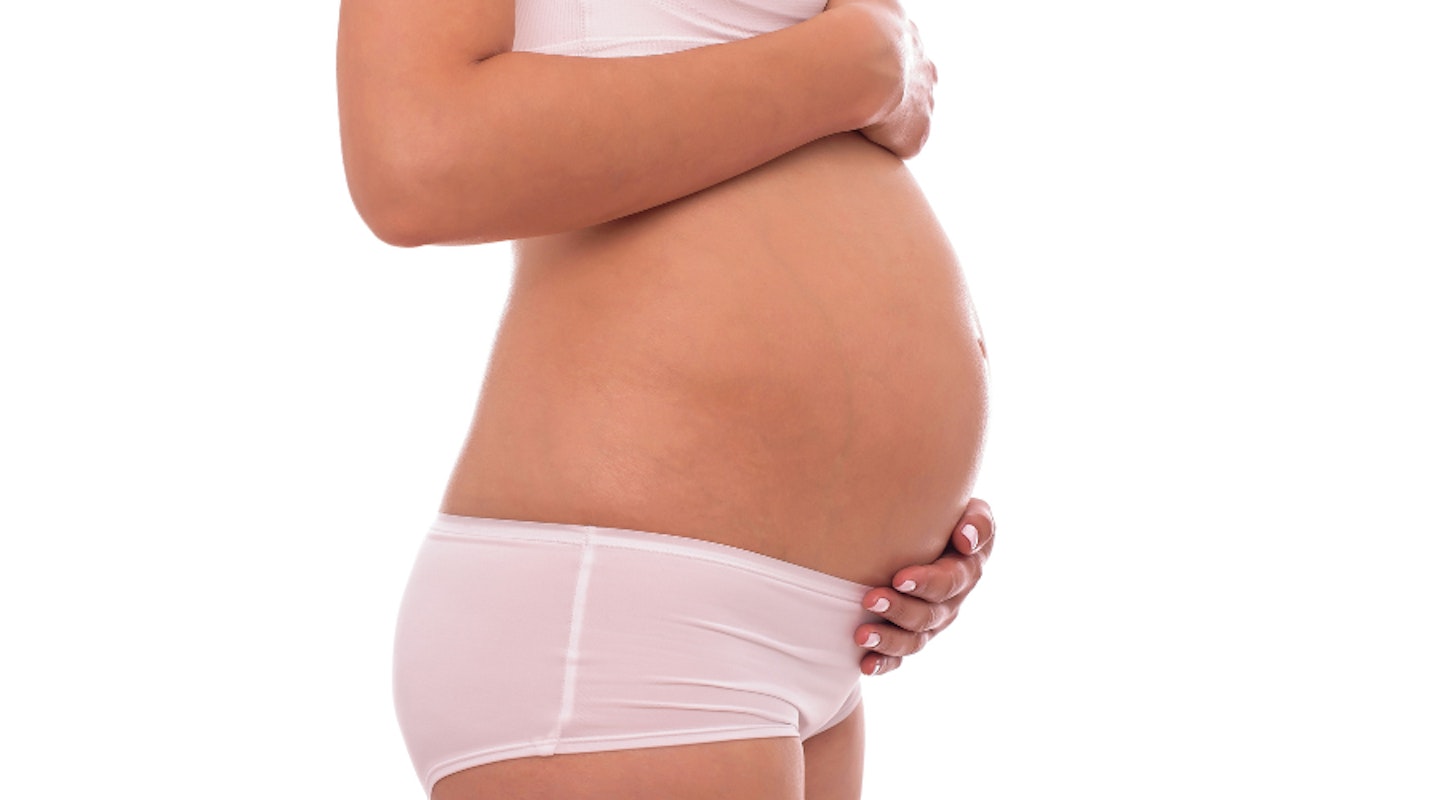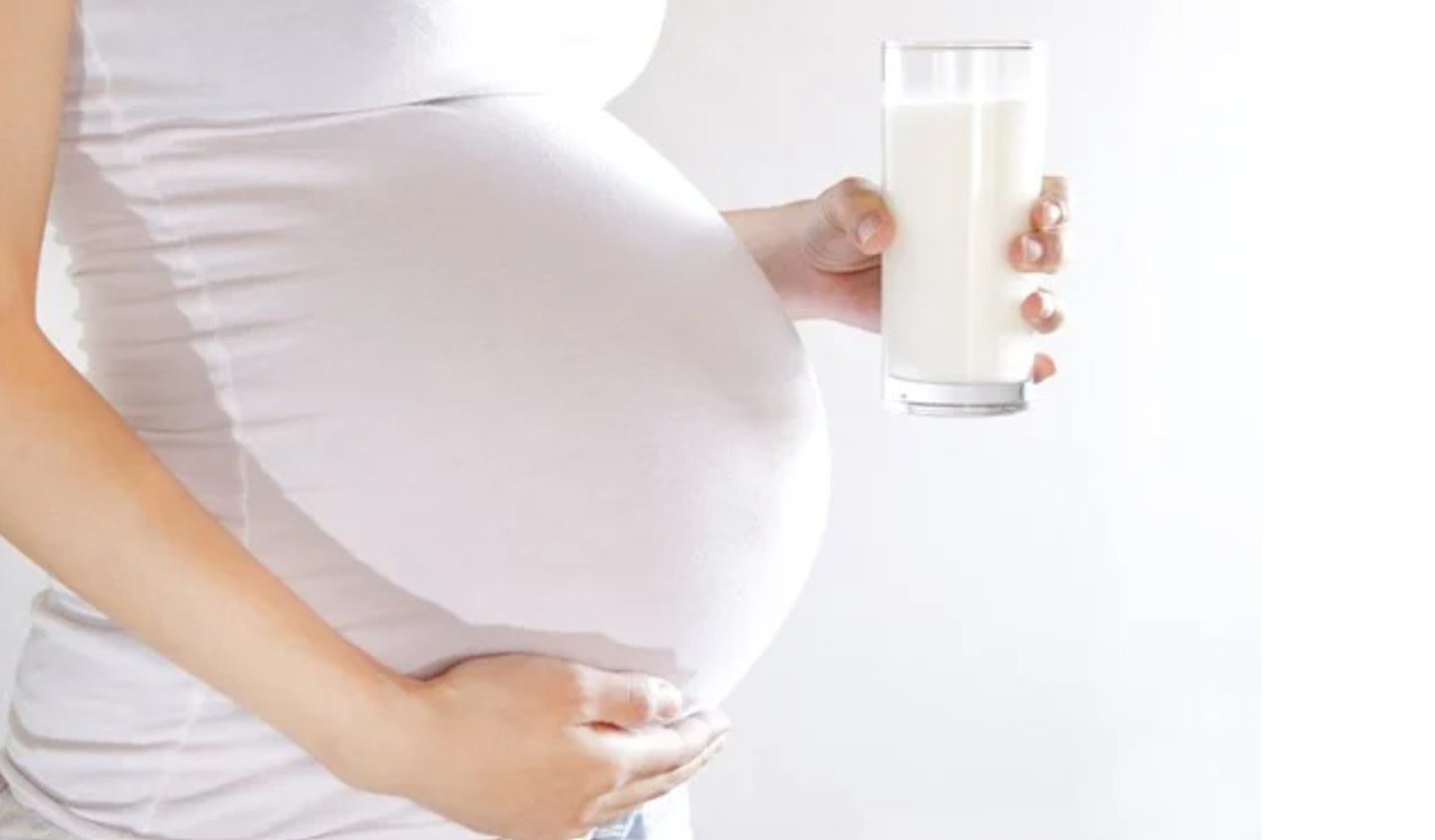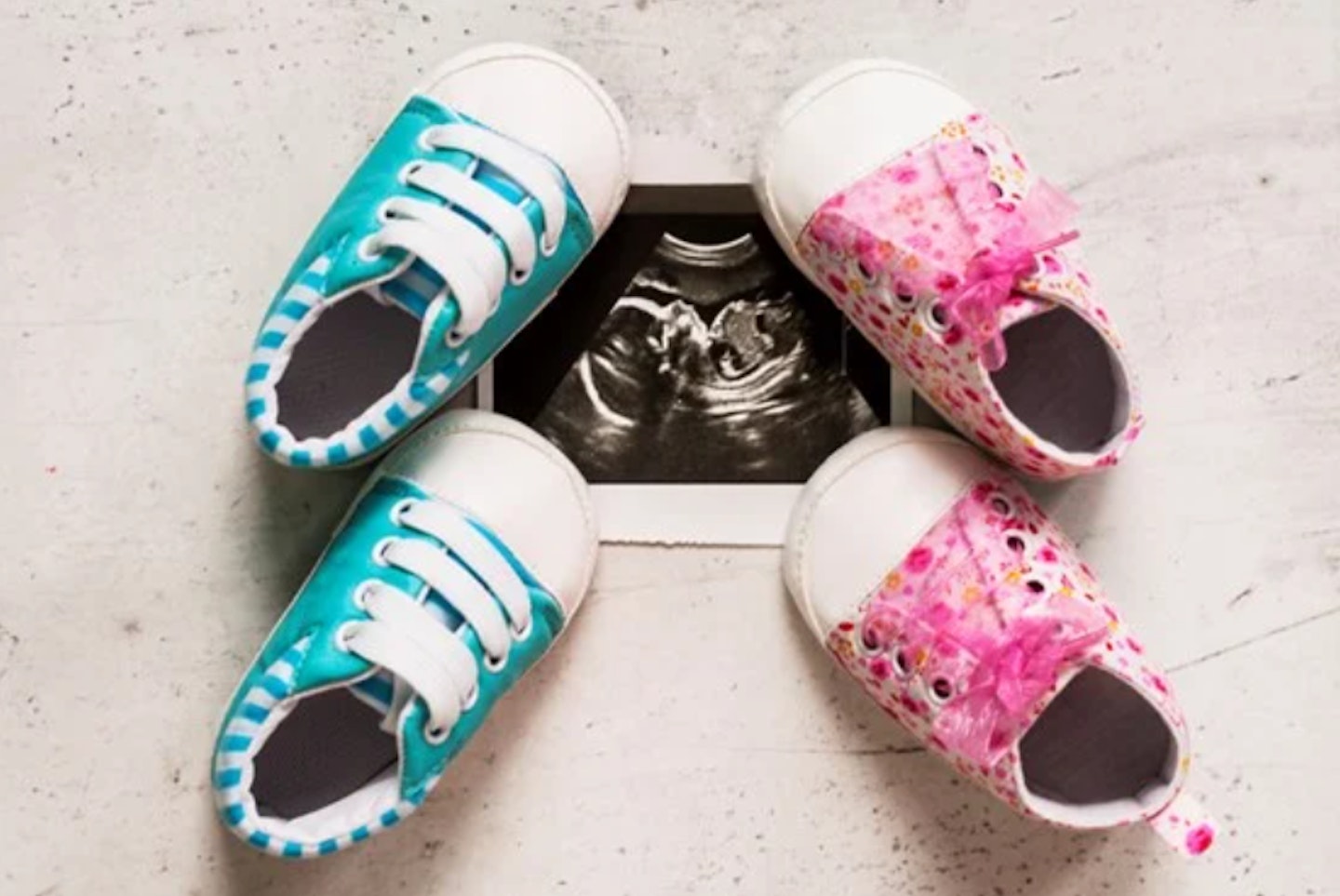
Medically Reviewed by: Lesley Bland BA (Hons), BSc (Hons) Midwifery Studies
Article medically reviewed by Lesley Bland, BA (Hons), BSc (Hons) Midwifery Studies who is a Registered Midwife and Consultant Midwife for My Expert Midwife.
At 20 weeks pregnant, you are halfway through your pregnancy and you’ll be getting ready for your anomaly scan, plus your baby’s bones are getting stronger. Find out more about how your baby is developing and how your body is changing, as well as the common symptoms to look out for at 20 weeks pregnant.
How many months is 20 weeks pregnant?
At 20 weeks pregnant, you are in the 5th month of pregnancy and you only have four more months to go. But Lesley Bland says, "remember that your Midwife will still count the weeks rather than the months for accuracy."
How big is my baby at 20 weeks pregnant?
Your baby is now about six and a half inches, or about the size of a banana if we keep up with the fruit analogies! They also weigh around 10 ounces. Lesley adds, "in comparison an average baby at 40 weeks weighs about 8 pounds so from now on they will literally be piling on the weight."

What's your baby doing at 20 weeks pregnant?
Your baby's movements at 20 weeks pregnant
Your baby's muscles are getting stronger and the NHS says that they are now kicking, punching and turning and you might start to feel a fluttering as their movements increase. Plus, they are still practicing their sucking reflex and this might also include sucking their thumb, which, Lesley comments, "which you may be able to see on an ultrasound scan." Also, baby might start to form more regular sleep and wake cycles, and if you are feeling the 'quickening' you now might know when baby is awake. That said, midwife Lesley, says, "don’t worry if you are not feeling movements at this time, however you should be feeling them by 24 weeks so if still concerned at this time let your Midwife know."
Your baby's body at 20 weeks pregnant
At 20 weeks, your baby’s growth spurt means their arms and legs have lengthened in the last few weeks and they are starting to look more and more like a baby every day! Their internal organs, such as the lungs, digestive system and immune system are all growing and developing. Their bones are getting stronger. Meconium may be starting to form in your baby's intestines which will become their first poo. They are also ingesting several ounces of amniotic fluid per day, and peeing it back out. Plus, their taste buds are starting to work.
Baby's fingerprints are taking shape, and these will be the same for life and completely unique to them. Even identical twins have different fingerprints. The white, greasy substance, vernix, is beginning to coat your baby which acts as a moisturiser and lubricant, protecting their skin whilst in the womb.
If you’re carrying a little girl, she’ll already have seven million primitive eggs in her ovaries (so potentially carrying your future grandchild!), this will be down to two million when she’s born. If you’re carrying a boy, his testicles will start moving from his abdomen this week.

Your pregnancy symptoms at 20 weeks pregnant
Heart burn and Indigestion
Yep, it’s still very much a problem, and unfortunately, pregnancy heartburn is set to stay as your bump gets bigger and adds additional pressure on to your stomach. Try eating smaller portions at mealtimes or eating 6 smaller meals rather than the traditional 3 larger meals, also try not lying down after meals, which causes reflux, instead an upright, position will aid digestion and reduce your heartburn. Additionally, chewing sugarless gum after mealtimes may alleviate the symptoms.
Headaches
These can be another normal side effect of pregnancy, be sure to take regular breaks from work, get plenty of fresh air, maintain hydration (midwife Lesley advises drinking at least 2 litres of water a day), and talk to your GP or midwife if they are persistent and not settling with paracetamol.
Leg cramps
We’re still not sure why leg cramps happen during pregnancy, but if those shooting pains are waking you in the night, try and put your feet up more during the day and make sure you’re drinking plenty of water. Lesley suggests, "a good pregnancy massage cream or serum can really help you to relieve the symptoms when they occur."
Oedema
If your feet and ankles look like you’ve just got off a long-haul flight, you’re suffering with oedema – basically water retention in your ankles and feet. To reduce swollen feet, ditch those heels and make sure your shoes are comfy and not too tight. Also, if you can avoid wearing tight socks or tights as these can cut off the blood flow and make the swelling worse. Lesley says, "if you notice swelling to your hands, face or feet that does not settle with rest or elevation speak to your Midwife or GP."
Vaginal discharge
Irritatingly, this unpleasant side effect is going to increase right up until birth. Vaginal discharge is your body's way of trying to keep bacteria away from that area of your body. "If you notice any offensive smell or your discharge is causing you to feel sore or itchy, or it is any colour other than white or pale yellow (especially green, red, brown), or it is particularly watery let your doctor or Midwife know, " says Lesley.
Shortness of breath
As your uterus grows, it can push against your diaphragm which in turn presses on your llungs which might lead to shortness of breath. This symptom will be made worse if you are pregnant with multiples. Make sure to relax where possible and do not overexert yourself. If you are concerned about shortness of breath in pregnancy, please speak to your Midwife or GP as it can be a sign of something more serious.
Round ligament pains
The NHS says that you might experience "pains on the side of your belly, caused by your expanding womb." These are known as round ligament pains. It is very common in pregnancy and not dangerous to your baby.
Dizziness
Try to stay cool to avoid dizziness from overheating; warm, stuffy rooms might make this worse. However, dizziness in pregnancy can be caused because the hormone progesterone increases the flow of blood to your baby, which results in lower blood pressure for you and reduced blood flow to your brain. Lesley advises, "dehydration can be a major cause of dizziness so ensure you drink at least 2 litres of water a day and more on hot days or during periods of activity. If you are persistently dizzy seek advice from your Midwife or GP."
Your body at 20 weeks pregnant
Placenta
Up until this point in your pregnancy, your placenta has weighed more than your baby, but from this point onwards, your baby will overtake it in weight. However, the placenta is still going to carry on growing and will have trebled in size by the end of your pregnancy and can weigh up to 1.5 pounds at birth.
Whilst we’re talking about the placenta, it will be something your sonographer checks during your scan this week. A placenta positioned close to or covering your cervix and the opening to the womb, known as placenta praevia, can cause difficulties when it comes to giving birth. Luckily, as your uterus grows, it can take the placenta with it moving it up and away from the cervix, so even if you have a low-lying placenta now, it could sort itself out by the time you give birth, in fact, reassures Lesley, "placenta praevia at term only affects approximately 1:200 births," so don’t panic!
Baby bump
Now you are at the halfway point, people will probably be noticing your baby bump. You might have started to notice it yourself from 16 weeks pregnant, or maybe it is still not showing, all baby bumps are different and things like your size and shape, whether this is your first pregnancy and genetics can affect it, however, around 20 weeks pregnant, you should start to see it developing.

Hair and nail growth
You might also notice your hair and nails are growing faster than normal – this is one of the benefits of those pregnancy hormones.
Energy
At 20 weeks pregnant, you might have increased energy. Enjoy the increase in energy, coupled with an increased libido as this may falter again in the third trimester. Lesley says, "remember to fuel your body with a healthy and balanced diet to maintain good energy levels."
Belly button
You knew it was going to happen, but in the next few weeks your innie is probably going to become an outie as your uterus pushes your abdomen forward. Don’t worry – it will go back to normal after you give birth.

Looking after yourself at 20 weeks pregnant
Make sure you’re getting enough calcium
If your baby were to have an X-ray, their skeleton would show up more clearly because more calcium has been deposited within their bones. Help them along by including plenty of calcium-rich foods in your diet, which is one of the essential nutrients you need during pregnancy
Do some light stretches
Taking up a pilates class or pregnancy yoga class can be a great way to strengthen and get key muscles working properly in preparation for labour. It can even help your mood and immune system!
Take a break from sitting
If you spend a lot of hours sitting at work, it's quite easy to become stiff, so take at least a 5 or 10 minute break every hour to stretch your legs - even if it's just a little walk around the office or to get a glass of water! Lesleys comments, "elevating your legs on a low stool and doing small leg exercises such as ankle rotations, as well as maintaining good hydration can improve your circulation and reduce your risk of developing blood clots or varicose veins."
What to do at 20 weeks pregnant
Fill out your MAT B1 form
You should automatically be given yourMAT B1 form around the time of your 20-week scan. This is the form that will allow you to be paid your maternity pay and benefits. Lesley advises, "this certificate can only be issued once and has a unique document code so make a note of that code or even better photocopy or photograph the certificate in case it gets lost. Your Midwife can issue a copy but not a new certificate."
Attend your anomaly, or 20 week, scan
At 20 weeks pregnant, it is time for your anomaly scan. During this scan the sonographer will check the development of your unborn baby looking closely at their limbs, and major internal organs such as heart, liver, kidneys, brain etc. The scan is more in depth than the dating scan around 12 weeks so plan to be there a little longer. The sonographer might also be able to tell you if you are expecting a girl or a boy if this is something you would like to know.
Decide if you want to find out the gender
You might have been guessing whether you are expecting a boy or a girl with fun activities like the Chinese gender predictor tool, however, at 20 weeks pregnant you might be able to find out for real. If you and your partner have been unsure what to do, to find out or keep it a surprise, then now is the time to decide so you can inform the sonographer at the scan.
Whooping cough vaccine
If you haven't already got the whooping cough vaccine, then think about organising it this week. The NHS advises that pregnant woman should be vaccinated against whooping cough between 16 and 32 weeks pregnant.

20 weeks pregnant FAQs
What happens during the 20 week scan?
Now for the exciting part, 20 weeks means it’s time to see your baby on ultrasound again at your anomaly scan. Your little one will be much more developed than at the last scan, and if you want, you can ask your sonographer to tell you if it’s a boy or a girl. This decision is completely up to you and is one worth thinking carefully about.
The anomaly scan also checks your baby’s heartbeat, the structure of her abdomen, the head, the spine, the brain and the volume of amniotic fluid. The sonographer will also take detailed measurements of your baby’s bones, to ensure everything is as expected. Once the scan is complete, you can usually take a printout home with you.
Can I feel my baby move at 20 weeks pregnant?
Yes, you might start to feel slight movements. The NHS advises for first pregnancies especially, between 16 and 24 weeks, is when you will first feel baby move. It is thought that 20 weeks pregnant is when most mums-to-be start to feel those little kicks, although at first they might feel like bubbles or flutters, known as the 'quickening.'
Is it safe to do exercise at 20 weeks pregnant?
Yes! In fact, it is actively encouraged that you do some sort of light exercise throughout your pregnancy if you feel well enough. If you have a exercise routine you stick to, make sure you speak to your doctor or midwife before starting again. Also, if you're planning to start a new exercise routine, always discuss what is best for your with a professional and avoid any potentially risky activities.
Should I have a gender reveal party?
It is a completely personal decision and depends on whether you are finding out if you are having a baby girl or baby boy. It is a nice way to tell friends and family what gender you are expecting, and of course, a lovely way to find out yourself. There are lots of gender reveal ideas to inspire you such as, confetti balloons, cake or scratch cards.
Can I travel at 20 weeks pregnant?
Yes, if you're safe and well and having an uncomplicated pregnancy, you are safe to travel at 20 weeks pregnant. However, if you're travelling on a long haul flight it is best to have a chat with your midwife or doctor as it is important to keep walking and moving even whilst still in the air to lower the risk of DVT (deep vein thrombosis). Most airlines allow pregnant women to fly up to 36 weeks.
How can I start bonding with my baby at 20 weeks?
Talk and sing away! Singing and talking to your baby is the best way to bond with your baby bump and at 20 weeks your baby will be able to recognise and hear your voice. You can also start shopping for clothing and adorable teddies for your little one - a great way to visualise and bond with them.
About the expert
Lesley Bland BA (Hons), BSc (Hons) Midwifery Studies is a Registered Midwife and Consultant Midwife for My Expert Midwife. She began her Midwifery career working in large teaching hospitals rotating through all clinical areas with particular emphasis on antenatal and intrapartum care.
Maria Martin is Digital Group Editor for Yours.co.uk and Motherandbaby.com. She is a mum-of-two with a passion for helping women from all walks of life – from supporting breastfeeding mothers with expert advice to encouraging conversations about mental health. In her professional role, she has over 10 years' experience in the digital world, including editing articles, focussing on SEO, social media engagement, picture researching and video editing.
